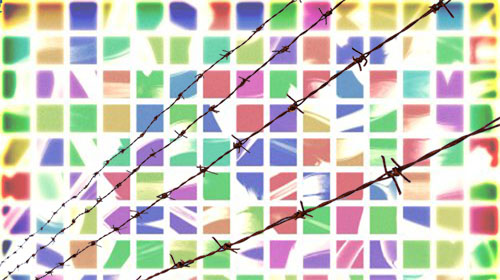
This Saturday and Sunday, June 1 and 2, mark the first annual . The ACLU is participating by enabling developers to access our and in turn make this information even more accessible to the public. Starting now, anyone can access the extensive data amassed by the ACLU relating to the Bush administration’s rendition, detention, and interrogation policies and practices.
But before we explain further, what exactly is Civic Hacking Day?
Here’s how the White House, which has , has described it:
Civic Hacking Day is an opportunity for software developers, technologists, and entrepreneurs to unleash their can-do American spirit by collaboratively harnessing publicly-released data and code to create innovative solutions for problems that affect Americans. . . . This is an opportunity for citizens in every town and city across the Nation to roll up their sleeves, get involved, and work together to improve our society by cultivating an ecosystem for innovation and change.
Essentially, Civic Hacking Day is an opportunity for programmers and others to capitalize on the release of public data to make our government and our communities more transparent, more efficient, and more accountable to the public.
What about the “hacking”? Isn’t that supposed to be a bad thing? Here’s how the organizers of Civic Hacking Day describe the term:
To us, a hacker is someone who uses a minimum of resources and a maximum of brainpower and ingenuity to create, enhance or fix something. Although in some circumstances it is used in a negative sense, the term is not inherently negative, nor does it even have to be related to technology.
We wholeheartedly agree. Hacking is a mindset and, to some, a way of perceiving and tinkering with the world. Like any skill, it can of course be used in the wrong way. Skilled hackers can help us visualize thorny problems, organize disorganized data, expose inefficiencies or security vulnerabilities, or even jumpstart social movements. That’s why we at the ACLU are excited to join many federal agencies, state and local governments, and private organizations in contributing to Civic Hacking Day.
When we looked at the that the federal and state governments and organizations have contributed to Civic Hacking Day, we noticed a gap. Many state governments, for example, appear to have contributed information that developers could use to make daily life more convenient: transit schedules, mapping data, restaurant-inspection information, and the like. But few, if any, have opened up their files in a way that would allow the public to hold the government accountable.
To fill that gap, we developed a freely available Application Programming Interface (API) to enable developers to make use of our , which is the largest public repository of primary-source documents relating to the Bush administration’s interrogation policies. We hope that developers will jump on this opportunity to help hold our government accountable, by visualizing this information in a way that sheds new light on the torture that took place in the years after 9/11.
The Torture Database came out of a Freedom of Information Act request filed in 2003, as part of our ongoing effort to uncover how our government used torture in the years following September 11, 2001. Following a court ruling in the ACLU’s favor, the government released more than 130,000 pages of documents on the interrogation program, including memos detailing the techniques authorized by the CIA, autopsy reports of detainees who died in custody, authorizations for the use of torture from the highest levels of government, email threads documenting heroic efforts to stop the use of torture, and more.
Many thousands of hours and extensive ACLU resources went into the Torture Database, which tells a story our nation must grapple with. We are thrilled to open the database up to enterprising developers around the country to help us make it even more accessible to the American public. You can read more about our Torture Database API . We will award the developer of the Torture Database app that impresses us most with an ACLU “swag bag,” which will include a t-shirt and other goodies, and we will feature that app (and any others that impress us) right here on our blog. So get hacking and send us what you come up with!

